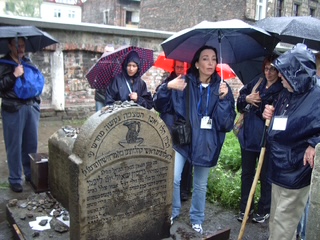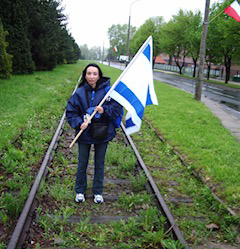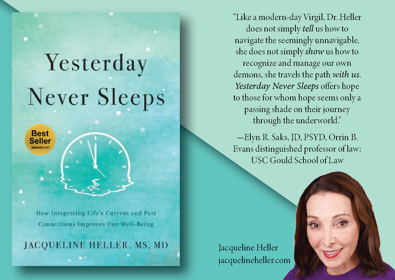Healing Across Generations

Dr. Heller’s professional journey in psychiatry and psychoanalysis has been deeply informed by her own family history. Both of her parents were Holocaust survivors, and Heller grew up attuned to the ways trauma ripples outward, shaping the lives of children and grandchildren. A phenomenon called “post memory,” is the inherited sense of having experienced events that happened before one’s own lifetime. “It’s a powerful link,” she explains. “Grandchildren often feel deeply connected to grandparents they never met, carrying fragments of their stories, their fears, and even their dreams.”
In her clinical and writing work, Heller explores how trauma is transmitted across generations—and, crucially, how it can be healed. For her, storytelling is central. She encourages people to create and continually update their “life narrative,” integrating experiences, emotions, and meaning over time. “Memoir writing, or any form of personal storytelling, helps us reflect, process, and gain perspective,” she says. “It allows us to move feelings from the raw, reactive parts of the brain into a place where they can be understood, managed, and even transformed.”
Heller’s insights reach beyond Holocaust families. She notes that severe trauma—whether caused by war, displacement, abuse, or other catastrophic events—can leave similar imprints on survivors and their descendants. That’s why she believes the therapeutic approaches she uses can benefit any community that has endured collective or generational trauma.
“Trauma has many faces. We see it today in refugees, in communities affected by violence, in people who lived through the COVID-19 pandemic. The symptoms, the family dynamics, the inherited fears—they often follow similar patterns.”
— Dr. Jackie Heller

“Trauma has many faces,” she says. “We see it today in refugees, in communities affected by violence, in people who lived through the COVID-19 pandemic. The symptoms, the family dynamics, the inherited fears—they often follow similar patterns.”
Her methods combine reflective practices like journaling, creative expression such as art and music, and guided opportunities to share one’s story in a safe, validating environment. At JFSLA, she’s heartened to see the success of programs like art and music therapy for seniors, where the act of creating and, and sharing their work has been profoundly healing. “When people feel seen and responded to, it lifts them,” she says. “That’s true whether they’re Holocaust survivors or part of any other community.”
Heller is candid about the challenges of breaking cycles of trauma. She speaks of the triggers and the unchanging story survivors sometimes repeat for decades—and the importance of helping individuals update their narratives so they reflect growth, resilience, and present-day realities. “Each generation has the right to interpret and tell the family story in their own way,” she explains. “It’s not about erasing the past, but about making it relevant and life-affirming in the present.”
She also believes in teaching concrete relational skills across generations: how to listen well, how to argue constructively, how to repair ruptures, and how to be curious about others’ perspectives. “These are not automatic skills,” she notes. “Many survivors didn’t have the chance to learn them in their disrupted childhoods, but they can be learned later in life.”
Her own family story offers hope. While her relationship with her mother was distant during her teen years, the two became extraordinarily close for the second half of her mother’s life. “People can change, even late in life,” she says. “Adult development doesn’t stop at 18. We can all grow, evolve, and repair relationships.”
For Heller, gratitude is a critical ingredient in that growth. She recalls how her parents, despite their losses, expressed wonder at the lives they were able to build. “When you see your parents’ gratitude for survival, for family, for freedom, it teaches you to be grateful, too,” she says.

Dr. Heller, now a grandmother, is retired from clinical practice but continues to write. Her first book, Yesterday Never Sleeps, became an Amazon bestseller, blending personal insight, clinical case studies with psychoanalytic theory. In its final chapters, Heller turned the lens inward, offering a memoir for which this analyst takes the couch herself—drawing on her own life experience. Heller has recently completed her second book, a novel exploring post memory entitled, When Dreams Remember.
As both a daughter of survivors and a physician, Dr. Heller carries forward that insight in her work, her writing, and her support for JFSLA. “Every person’s story deserves to be told and heard,” she says. “And every community that has experienced trauma deserves the tools to heal.”